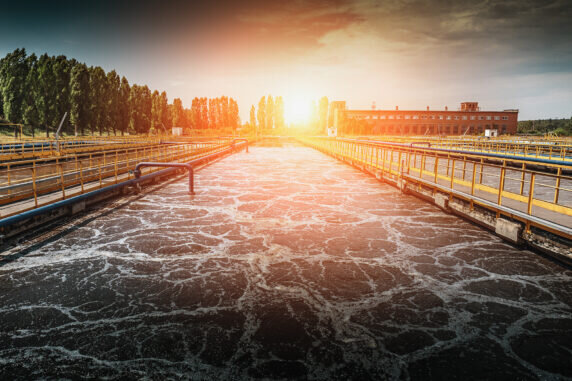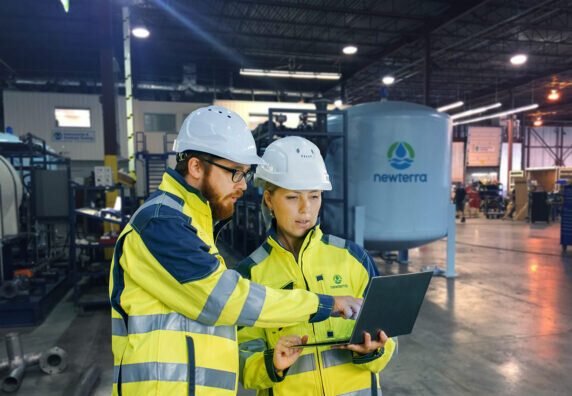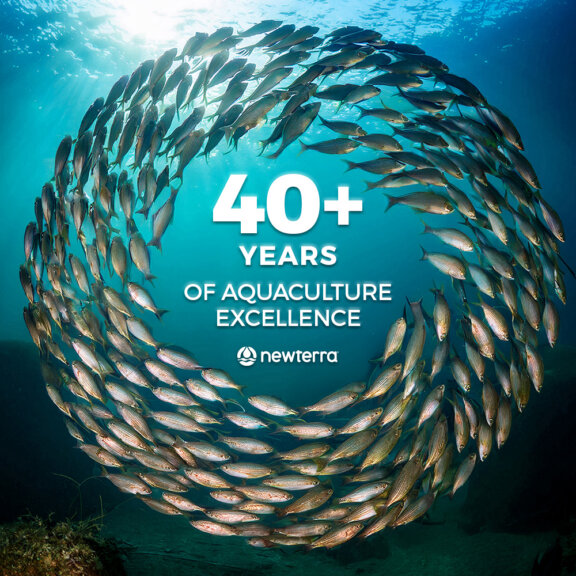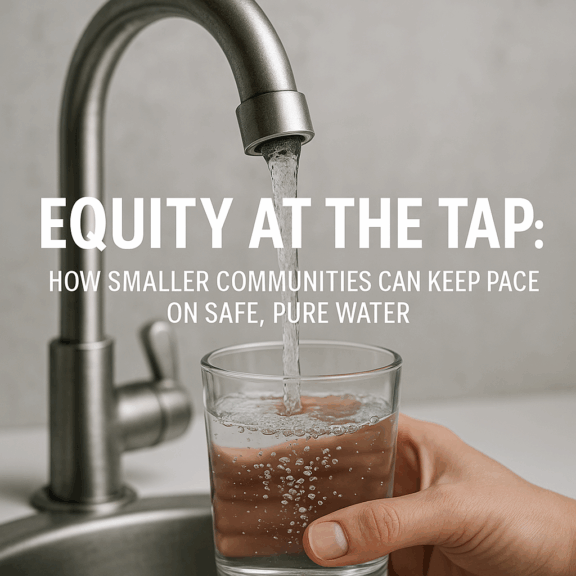The Future of Water Management in the Food and Beverage Industry
Written by: Nathan Smith, SVP, Marketing & Lifecycle Leader – Newterra
In a world increasingly defined by resource constraints, the food and beverage industry finds itself at the nexus of sustainability and technological evolution. As we navigate the waters of 2024, the imperative for robust water and wastewater management has never been more critical, standing as a linchpin in the industry’s journey towards operational excellence and environmental stewardship. This article serves as your navigational chart through the evolving currents of water management, spotlighting the pivotal trends and breakthrough technologies poised to redefine water and wastewater practices in food and beverage manufacturing.
Armed with cutting-edge research and comprehensive market analyses, we delve into how these emerging trends not only align with regulatory mandates but also drive economic efficiency and sustainable development. For industry professionals, this isn’t just about keeping pace with advancements; it’s about spearheading the industry’s adaptation to a resource-limited future. By synthesizing advanced treatment technologies and sustainability strategies, this article delineates a roadmap for navigating the intricate landscape of water and wastewater management, ensuring your operations are primed for resilience and growth in an era of flux and opportunity.
Anticipate gaining from this exploration a sharpened acumen for informed decision-making, allowing you to judiciously invest in technologies and practices that enhance operational efficiency and sustainability. Grasp the innovations and market dynamics that provide a competitive advantage, facilitating the implementation of cost-effective, productivity-boosting, and sustainable water treatment solutions. The insights shared here will also guide you through the complex terrain of regulatory compliance, aiding in the development of compliant and efficient water management strategies that preempt legal and financial pitfalls.
Furthermore, this article underscores the strategic importance of sustainable water management practices, showcasing their role in fulfilling corporate environmental goals, reducing waste, and conserving vital resources. It also addresses the crucial need for resilient water management systems, equipping you with the knowledge to mitigate risks associated with water scarcity and quality, thus ensuring steady and reliable operations amidst environmental adversities.
Embark on this journey with us as we unveil the future of water management in the food and beverage industry, where each decision and innovation pivots towards crafting a more sustainable and prosperous trajectory for the sector.
2024 Water Management Trends in the Food and Beverage Industry

Water Management Trends
- How prepared is your facility to integrate automation in water treatment processes to ehance operational efficiency?
- Can modular water treatment systems provide the scalability and flexibility your operations need?
- What steps can you take to leverage digital water management tools to cut costs and optimize resource use?
As we enter 2024, the food and beverage industry is poised for significant advancements in water and wastewater management, with a keen focus on efficiency and sustainability. The global food and beverage automation market, according to a Mordor Intelligence report, is expected to grow at a compound annual growth rate (CAGR) of 7.2% from 2019 to 2024, highlighting the industry’s shift towards automation to enhance operational efficiencies and reduce manufacturing costs.
Furthermore, modular water treatment systems are gaining traction, with StartUs Insights forecasting a 10% annual growth over the next half-decade. This growth underscores the industry’s need for flexible and scalable water treatment solutions, catering to the varying demands of production and ensuring sustainability.
Digital water solutions are revolutionizing the sector by potentially reducing operational costs by up to 30%, as per insights from the Water Environment Federation. This cost reduction is achievable through improved management of energy, chemicals, and labor. Additionally, the IoT in water management market is projected to reach $35.9 billion by 2025, according to Markets andMarkets, indicating a rapid adoption of digital technologies to optimize water use and enhance sustainability in the industry.
These trends reflect a broader movement towards integrating more advanced and efficient technologies in water and wastewater management, highlighting the food and beverage industry’s commitment to sustainability and operational excellence in the face of global challenges.
Technological Innovations in Water and Wastewater Treatment
The landscape of water and wastewater treatment in the food and beverage industry is undergoing a significant transformation, propelled by technological advancements. Membrane technology, especially nanofiltration and reverse osmosis, is at the forefront of this revolution. The global market for membrane water treatment technology is on a trajectory to hit $13.5 billion by 2025, expanding at a compound annual growth rate (CAGR) of 7.7% from 2020. This growth underscores the technology’s vital role in meeting the surging demand for clean water and its efficacy in purifying and removing contaminants efficiently.
In parallel, bio-based water remediation methods are carving a niche in the industry, reflecting a shift towards more sustainable and environmentally friendly practices. Research published in the “Journal of Environmental Management” highlights that these bio-based techniques can successfully remove up to 90% of pollutants, including heavy metals and organic compounds, from industrial wastewater. This efficiency not only emphasizes the methods’ environmental benefits but also points to their potential in reducing the overall ecological footprint of the food and beverage sector.
These innovations are not just enhancing the quality and sustainability of water treatment processes but are also aligning with the industry’s broader goals of operational efficiency and environmental stewardship. As these technologies continue to evolve and mature, they are set to play a pivotal role in shaping the future of water and wastewater management in the food and beverage industry.
Sustainability and Resource Recovery in the Food and Beverage Industry
Sustainability has evolved from a mere buzzword to a core component of operational strategy within the food and beverage industry. Central to this shift is the adoption of water recycling and waste-to-energy processes, which are pivotal in diminishing the sector’s water footprint and fostering a circular economy. According to the United Nations Environment Programme (UNEP), water recycling initiatives can slash freshwater withdrawals by up to 60%, offering a substantial contribution to sustainable water management and mitigating the environmental impact of industrial activities.
The economic implications of these sustainable practices are equally compelling. The Ellen MacArthur Foundation reports that embracing circular economy strategies, such as waste-to-energy processes, not only reduces environmental strain but also bolsters profitability. Specifically, in the food and beverage sector, these strategies can significantly curtail production costs by minimizing waste and optimizing resource use.
Moreover, the operational cost benefits of integrating sustainability and resource recovery practices are notable. Research from the World Resources Institute (WRI) suggests that companies can achieve a 20-30% reduction in operational costs by implementing water recycling and resource recovery practices. This cost reduction is primarily attributed to decreased expenditures on water procurement and wastewater disposal, underscoring the economic viability of sustainable practices.
These data points vividly illustrate the dual benefits of sustainability and resource recovery — environmental stewardship and economic efficiency. By integrating these practices, the food and beverage industry can significantly advance toward a more sustainable and economically sound future.
Regulatory and Compliance Challenges in Water and Wastewater Management
Navigating the regulatory landscape in water and wastewater management is becoming increasingly complex as standards tighten globally. According to Global Water Intelligence (GWI), there has been a notable uptick in the stringency of water quality and wastewater treatment regulations, with penalties for non-compliance rising by approximately 15% annually over the last five years. This trend highlights the escalating focus on environmental protection and the imperative for companies to align with evolving regulatory demands.
The financial stakes of non-compliance are significant. The Environmental Protection Agency (EPA) notes that the costs associated with regulatory breaches, including fines, legal fees, and remediation expenses, can be substantial. In some instances, companies have incurred fines exceeding $10 million for major violations of regulations like the Clean Water Act in the United States, underscoring the potential financial risks.
Beyond the direct financial implications, regulatory non-compliance can severely impact a company’s brand reputation. Deloitte’s insights reveal that nearly 60% of consumers are less likely to purchase products from companies with a history of environmental non-compliance. This consumer sentiment indicates the broader reputational risks and the potential loss of trust and loyalty from stakeholders, further emphasizing the importance of adhering to regulatory standards.
For companies in the food and beverage industry, these insights underline the necessity of proactive regulatory compliance. Staying ahead of regulatory changes, investing in compliant water and wastewater management technologies, and maintaining transparent environmental practices are crucial steps to avoid financial penalties and safeguard brand reputation.
Resilience and Risk Management in the Food and Beverage Industry
In the face of climate change and water scarcity, building resilient water and wastewater systems has become paramount for the food and beverage industry. The World Bank indicates that climate change could intensify global water scarcity by 20%, a scenario that poses significant risks to water-intensive sectors like food and beverage. This projection underscores the urgency for companies to establish robust water management systems capable of withstanding these environmental challenges.
Effective risk management is not just a matter of regulatory compliance; it’s a strategic necessity. McKinsey & Company’s research shows that proactive environmental risk management, including water-related risks, can lead to cost reductions of up to 20%. For food and beverage companies, this means that focusing on sustainable supply chains and efficient resource use is not only beneficial for the environment but also for the bottom line, ensuring operational continuity in the face of resource constraints.

Action Items for Sustainability and Resilience
- Conduct a water risk assessment to identify potential challenges in supply and quality.
- Develop a contingency plan that includes alternative water sources and treatment methods to ensure uninterrupted operations.
- Develop a water recycling program to minimize freshwater use and reduce discharge.
- Conduct a cost-benefit analysis of implementing waste-to-energy processes in your facility.
Moreover, the Food and Agriculture Organization (FAO) has highlighted that sustainable water and wastewater practices can increase resource efficiency by 30% in the food and beverage industry. This level of efficiency is crucial for maintaining business continuity and achieving long-term sustainability goals, providing a buffer against the unpredictability of climate change and resource availability.
For industry professionals, these insights emphasize the importance of integrating resilience and risk management into the core of business strategies. By doing so, they can secure their operations against current and future environmental risks, ensuring sustainable growth and long-term viability in a rapidly changing global landscape.
Looking Ahead: Opportunities for the Industry
As the food and beverage sector navigates the evolving landscape of water and wastewater management, several key opportunities emerge that can significantly benefit industry professionals:
Resource Efficiency and Cost Savings: Advancements in water recycling and reuse technologies present a prime opportunity for reducing water usage and operational costs. The Water Research Foundation indicates that such technologies can decrease water use by up to 30% in the food and beverage industry, offering a clear path to financial savings and enhanced resource efficiency.
- Sustainable Branding and Consumer Trust: The growing consumer demand for sustainability is reshaping the market. Nielsen reports that sustainably-minded brands in the food and beverage sector are experiencing faster growth than their counterparts, with a 5.6 times increase. This trend underscores the potential for companies to strengthen their market position and consumer trust through committed water stewardship practices.
- Regulatory Compliance and Risk Mitigation: Proactively managing water resources can mitigate regulatory and operational risks. The Environmental Law Institute notes that effective water management leads to fewer compliance issues, enabling companies to adapt more readily to new regulations and avoid potential financial penalties.
- Innovation and Market Leadership: Deloitte’s findings reveal that innovation, particularly in sustainable water management, correlates with market leadership and superior financial performance. Companies at the forefront of water technology innovation are likely to achieve a 30% higher probability of leading in their market, showcasing the value of investing in advanced water and wastewater solutions.
- Operational Resilience and Supply Chain Stability: Effective water management is key to ensuring operational resilience and stable supply chains. The Food and Agriculture Organization (FAO) highlights that robust water strategies can lead to up to 20% less disruption in operations, emphasizing the importance of sustainable water practices in maintaining continuous production and meeting market demands.
These insights pave the way for food and beverage industry professionals to leverage water and wastewater management as a strategic asset, driving not only sustainability and compliance but also operational efficiency, market growth, and long-term resilience.
Conclusion
As 2024 progresses, the critical role of water and wastewater management in the food and beverage industry becomes increasingly clear. For businesses in this sector, prioritizing operational efficiency, sustainability, and compliance is not just strategic; it’s essential for future resilience and success. The dynamic landscape of water management, enriched with technological innovations and sustainability trends, presents an opportunity for these businesses to excel in a competitive and resource-constrained environment.
Newterra, with its deep-rooted legacy in process water, wastewater solutions, and specialized expertise in membrane technologies, is here to support your journey. Our commitment is to empower you, the food and beverage professionals, to navigate and overcome industry challenges, drawing from decades of dedicated service and innovation.
We can tackle your water management challenges together. Collaborate with us to pilot new solutions in your operations, providing valuable feedback that shapes future innovations. Contact us to explore partnership opportunities.
Become part of a community dedicated to sustainable water management in the food and beverage industry. Connect with us on LinkedIn to stay informed and engage with a network of professionals committed to making a difference.
Stay ahead in the field of water management by accessing our comprehensive resource library, featuring case studies, best practices, and research insights. Visit our website to continue your learning journey. Or, if you have specific questions, reach out directly to our team of experts.
Your achievements in navigating the complexities of water and wastewater management are the true measure of success. With Newterra’s support, your business can not only meet the current industry standards but also anticipate and leverage future trends. Let’s work together to ensure your operations are resilient, sustainable, and ready to meet the challenges and opportunities of tomorrow.


